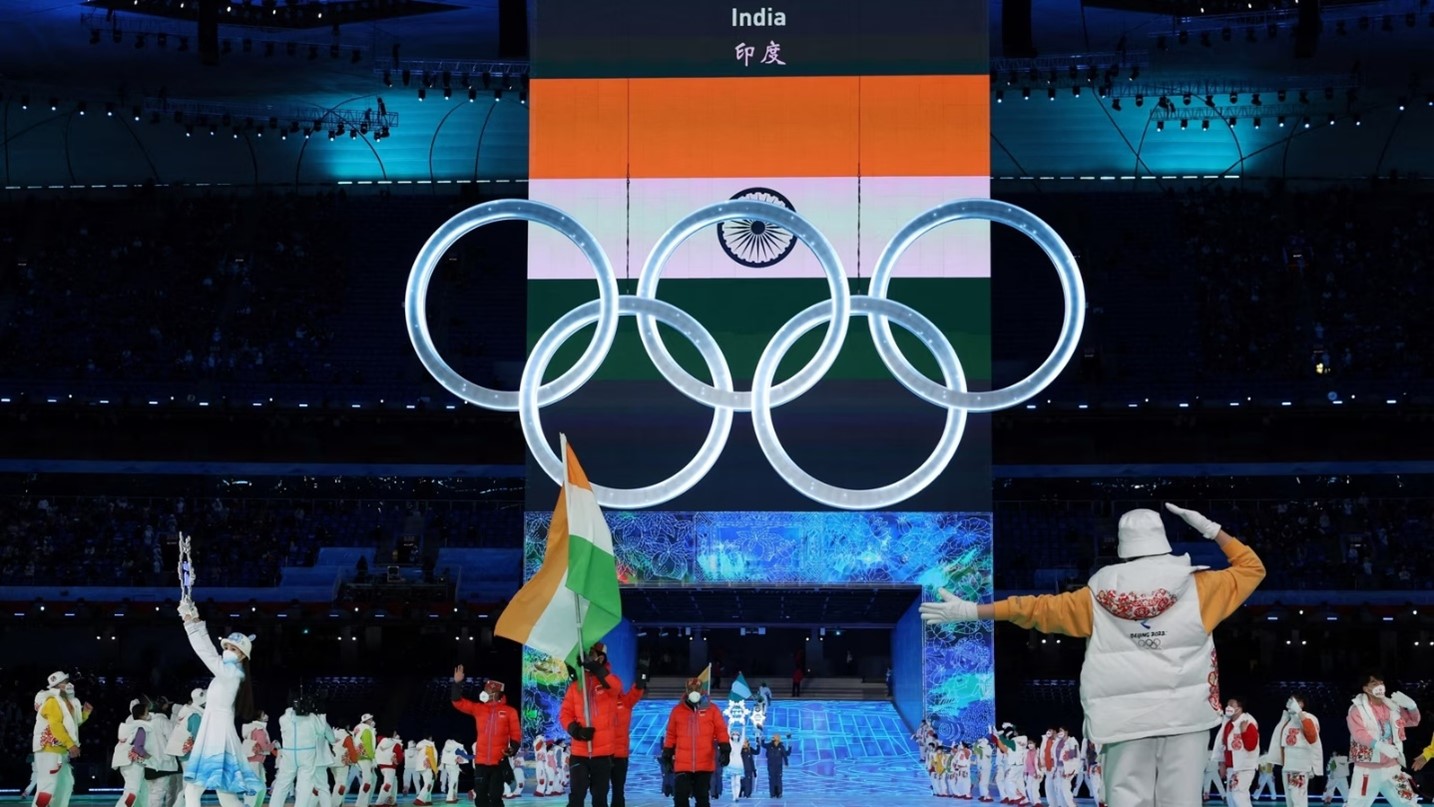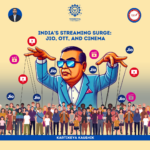-Editor
-Chourasia Anshul
Why In the news?
The recently concluded 141st International Olympic Committee session was held at Jio World Center in Mumbai and inaugurated by PM Narendra Modi where he revealed India’s ambition to host the Olympics in 2036, stating that the administration would “leave no stone unturned” in getting the Games to the country for the first time.
What is the Olympics?
The Olympics, short for the Olympic Games, are a renowned international sporting event held every four years. These Games bring together thousands of athletes from around the world to compete in a wide range of sports and disciplines. The Olympics are characterized by their tradition, pageantry, and the spirit of friendly competition among nations. Modern Olympic Games have two primary editions: the Summer Olympics and the Winter Olympics. The Summer Olympics include a diverse array of sports such as track and field, swimming, gymnastics, and team sports like soccer and basketball. The Winter Olympics focus on sports played on snow and ice, including skiing, snowboarding, ice hockey, and figure skating.
Who decides the host countries and handles the events?
The International Olympic Committee (IOC) is responsible for choosing the host city for each Games and organizes and funds the Games according to the Olympic Charter. The decision to award the hosting rights is made by the members of the IOC, who meet at their session. The host city is elected by a majority of the votes cast by secret ballot. Each active member has one vote. If a majority is not achieved in the first round of voting, the candidate with the fewest votes is eliminated, and a further round or rounds of voting are held until a majority is obtained by one candidate. The process of electing the host city for the Olympics involves multiple stages of dialogue and guarantees before the hosting rights are awarded for holding the Games. The decision to award the hosting rights for the 2036 Olympics will not be made until at least the IOC’s election next year. There is no fixed deadline in place to decide who will host the 2036 Olympics. The decision could be made as late as 2030.
Economics of Olympics- lessons from history
The Olympics is an expensive endeavor that leaves cities and nations with massive debts and economic woes. Bidding for the Olympics is a costly proposition, with countries spending tens of millions of dollars for the chance to host the games. In the event of a successful bid, the expenses can soar into billions of dollars. One of the prime reasons why economists disagree with the advantages of the Olympics is the budget overrun, which is significantly stated in history.
What are the associated costs-
Hosting the Olympic Games is a massive undertaking that entails substantial investments in infrastructure and operations. These expenditures can be categorized into general infrastructure, sports infrastructure, and operating costs.
General infrastructure preparations are fundamental to accommodate the surge of tourists and athletes during the event. The International Olympic Committee mandates specific criteria, such as the availability of at least 40,000 hotel rooms for spectators and an Olympic Village capable of housing 15,000 athletes, referees, and officials. These demands often lead to renovations of existing facilities or the construction of new ones, which may encompass transportation systems like train/subway lines, roads, and airports.
Sports infrastructure focuses on creating or enhancing facilities tailored to the Olympic requirements. These venues must adhere to minimum size standards and safety protocols. Less frequently used facilities, like natatoriums, velodromes, and sliding tracks, may require substantial refurbishments or even entirely new construction.
the host city and slopes. This enabled the use of existing slopes alongside larger host cities with more infrastructure, such as Milan.
Operating costs represent a significant financial commitment during the Games. These costs cover event management, organization, and the preparation of extravagant opening and closing ceremonies. In recent years, security expenses have increased substantially, reflecting the importance of ensuring the safety of athletes and spectators.

The business side of Olympics-

Broadcasting-
Media companies contribute significantly to the revenue of the Olympics, accounting for approximately 61% of the total income. These media entities encompass cable networks, online platforms, and even radio stations. The International Olympic Committee actively engages with these companies to ensure extensive coverage of the Olympic events, thereby maximizing the global audience reach.
The broadcasting business during the Olympics is a lucrative industry. The worldwide revenue from the marketing of broadcasting rights for the Summer Olympic Games was approximately 3.1 billion U.S. dollars for the Tokyo 2020 Olympics. The broadcasting revenue generated from the Summer Olympic Games has been increasing since 1960. Olympic Broadcasting Services produces the world feed provided to local broadcasters for use in their coverage. NBC is one of the major broadcasters of the Olympics in the United States. The 2020 Summer Olympics were televised by several broadcasters throughout the world, including NBC, CBC, and Discovery.

Advertisement-
In the fiercely competitive world of marketing and promotion, brands and businesses are constantly on the lookout for bigger and better ways to showcase their products and services. One of the grandest and most effective platforms for achieving this goal is none other than the Olympic Games. This iconic sporting event, watched by millions around the world, offers a unique opportunity for companies to gain unparalleled exposure. As a result, global giants like Toyota, McDonald’s, and Coca-Cola are more than willing to pay top dollar to sponsor both the Games and Olympic athletes. Brands pay millions of dollars to get the rights to put up the Olympics rings on their products to advertise it worldwide.

Sale of tickets and licensed products-
At the most basic, the Olympics host earns through the tickets sold at various stadiums with viewership in huge numbers. The International Olympic Committee (IOC) manages a global licensing program that offers official merchandise, collectibles, and souvenirs for fans of the Olympics. The licensing program consists of three core programs aimed at specific target groups: the Olympic Heritage Collection, the Olympic Collection, and the Olympic Games Collection. These programs offer a range of products such as apparel, toys and games, bags, stationery items, sports equipment, accessories, souvenirs, fan gear, and more. The official mascots of each edition of the Games often form a key part of these licensing efforts, while coins and stamps are also hugely popular among the public and Olympic collectors. The licensing programs are managed by the local Organizing Committees under the direction of the IOC. The revenues generated from these programs help provide part of the funds required to stage the Games. The IOC works to ensure the authenticity and quality of Olympic branded merchandise through a comprehensive program of anti-counterfeiting devices, trademark legislation, education, monitoring, and enforcement.

In conclusion, India’s bid for the 2036 Olympics is a bold and ambitious step. While the prospect of hosting the Games offers immense prestige and economic opportunities, it also comes with formidable challenges. The lessons from history underscore the importance of prudent financial planning and management to ensure that the economic benefits outweigh the costs. As the world eagerly awaits the final decision on the 2036 Olympics host, it is evident that this monumental event will continue to shape the landscape of global sports and economics in the years to come.
What is your opinion- What would be the impact of hosting the Olympics in a decentralized manner across multiple locations with the reuse of stadiums?
Reference-
https://businessmodelanalyst.com/the-olympics-business-model/
Summer Olympic Games broadcast revenue | Statista
List of Brands Sponsoring The Tokyo 2020 Olympics (startuptalky.com)
Olympics and their economic impact: Updated research roundup (journalistsresource.org)The Economic Impact of Hosting the Olympics (investopedia.com)















Leave a comment